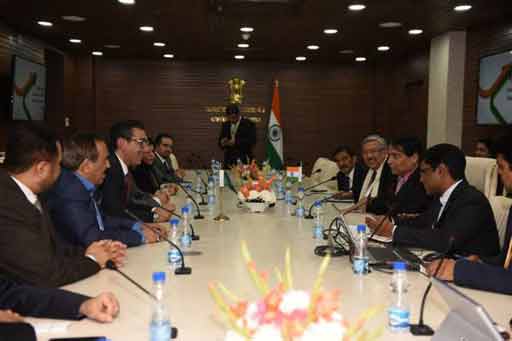A groundbreaking transformation is about to reshape property registration in Madhya Pradesh. The state is set to implement a new instant registration system that mirrors the efficiency of booking train tickets. This streamlined process will eliminate the need for multiple office visits, allowing individuals to complete their property registration and name transfer instantly. However, much like the tatkal ticketing system for trains, users will need to pay a higher fee for expedited services.
How the New Instant Registration System Works
The new property registration system is designed to be swift and efficient, enabling users to register their property seamlessly within a day. This service is expected to be operational within the next three months, providing significant convenience to residents and investors.
Immediate Name Transfers and Expedited Processing
One of the most appealing aspects of this system is the immediate name transfer feature. Traditionally, this process required extensive documentation and multiple visits to the registration office. With the new system, all procedures will be completed on the spot, significantly reducing wait times. However, users must be prepared to pay an additional fee, likely ranging between ₹4,000 to ₹5,000, to avail of the instant service.
Pre-Registration Preparations
To utilize the instant registration facility, individuals must plan at least a day in advance. The registration process will be conducted at the designated registration office in the respective district, ensuring that all formalities are handled locally. This simplifies the logistics and offers a more localized service experience.
Role of Video Conferencing in the Process
To further enhance efficiency, the new system will incorporate video conferencing technology. This innovation ensures that all parties involved in the transaction can participate remotely, eliminating the need for physical presence.
Slot Booking and Verification
The process begins with booking a slot through the Sampada-2 portal. Once the booking is confirmed, both parties will be required to join an online session at the appointed time. This session will be facilitated by a sub-registrar, who will oversee the proceedings and verify all details in real time.
Instant PDF Delivery of Registration Documents
Upon completion of the process, a PDF copy of the registration document will be instantly sent to the user’s mobile device. This eliminates the traditional delays associated with receiving physical documents and provides users with immediate access to their legal papers.
Special Centers for Instant Registration
To accommodate the anticipated demand for this service, special centers are being established at registration offices. These centers will be equipped with dedicated sub-registrars trained to handle instant registrations efficiently.
E-Token Issuance and Document Verification
Once an individual presents their registration ID at the office, an e-token will be issued. This token serves as a unique identifier for the transaction. The required documents will then be verified, and a webcam photograph will be taken to ensure identity confirmation.
Secure PIN for Completing the Process
As a final step, a secure PIN will be sent to the registered mobile number of the user. This PIN must be safeguarded, as it is essential for completing the registration process.
Advantages of the New System
The implementation of this system brings numerous benefits, including:
- Time Savings: Instant registration reduces the overall time required for property transactions.
- Convenience: Users no longer need to make repeated visits to registration offices.
- Digital Accessibility: The use of video conferencing and PDF documents ensures a tech-friendly approach.
- Transparency: A streamlined process with electronic records minimizes the risk of errors or fraudulent activities.
Challenges and Considerations
While the new system offers significant advantages, there are some challenges and considerations to address:
- Additional Costs: The higher fee for instant registration may be a deterrent for some users.
- Technological Access: Users must have access to stable internet connections for video conferencing.
- Slot Availability: With a growing demand for this service, securing a preferred slot may become challenging.
















